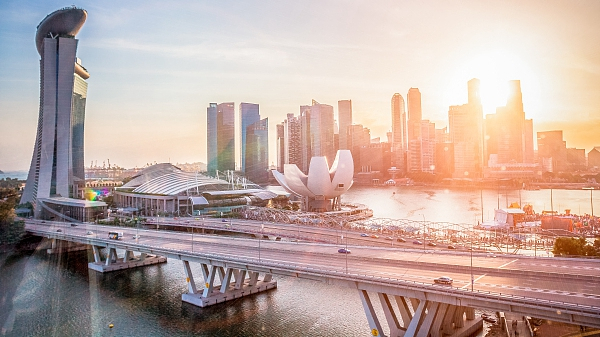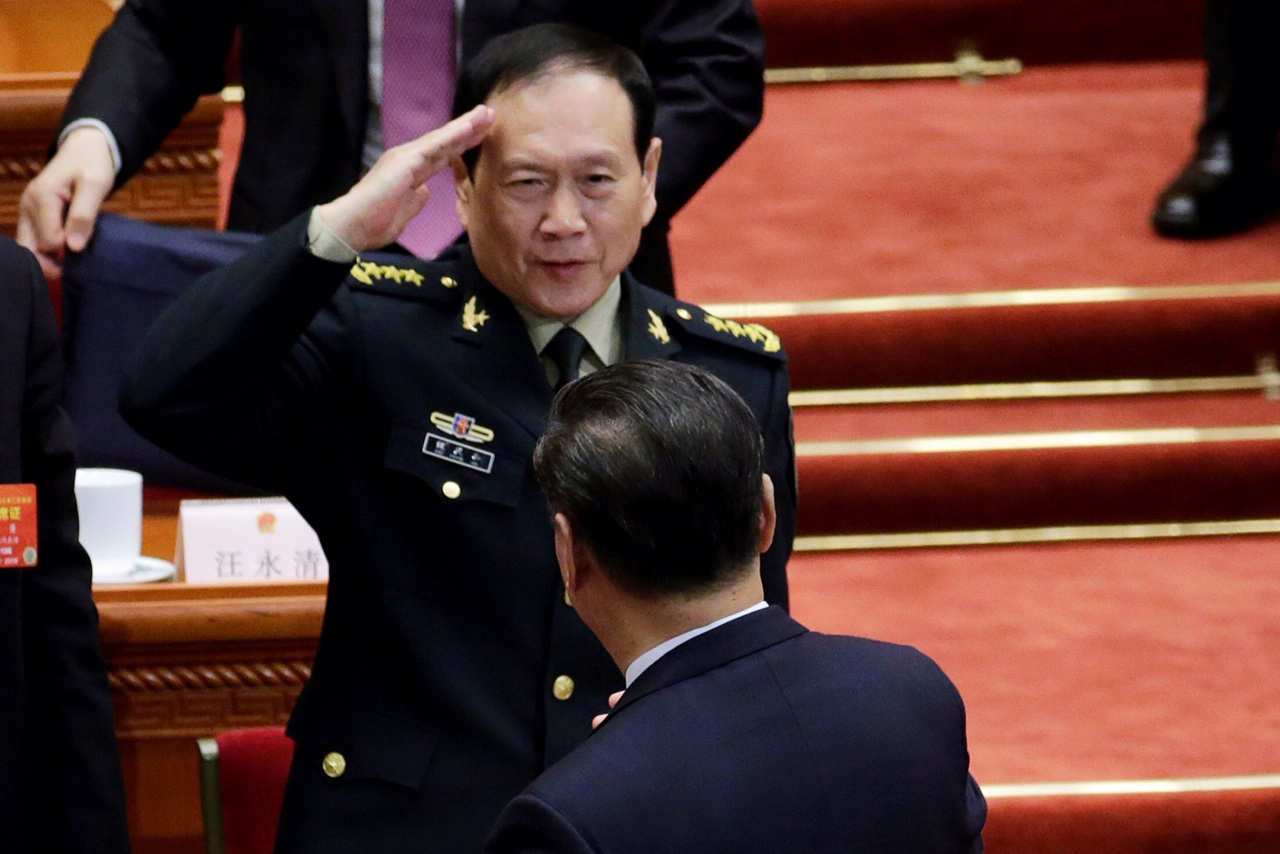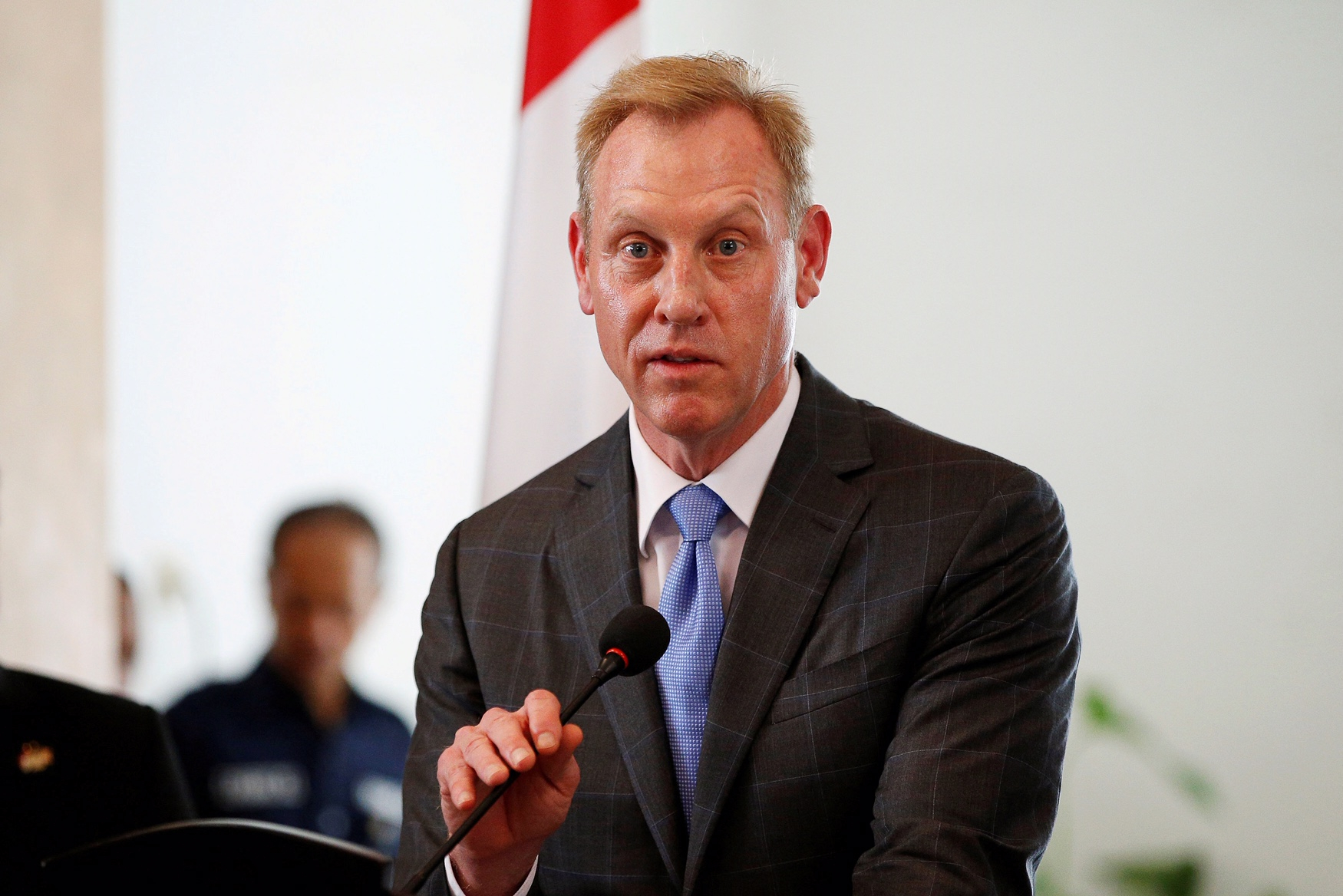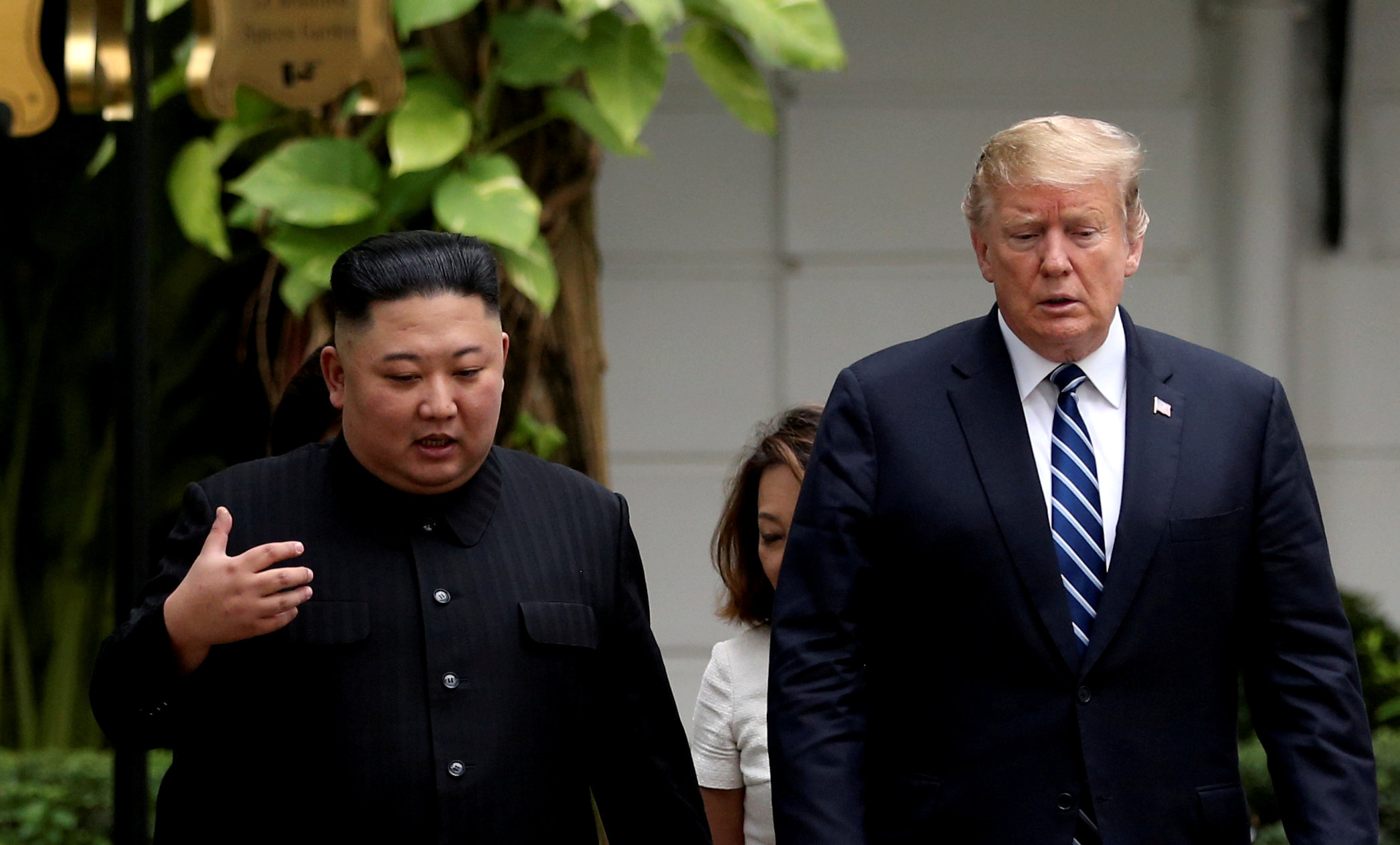
Asia Pacific
23:22, 30-May-2019
China-U.S. tensions likely to take center stage at Shangri-La Dialogue
By Aliyah Sahni

Asia's high profile defense and security summit – the Shangri-La Dialogue, is returning for its 18th edition this week.
Held in Singapore, the three-day dialogue will be attended by defense ministers, military chiefs and top-ranking military officials from 38 countries across Asia, Australia, North America and Europe.
John Chipman, director-general of the International Institute for Strategic Studies (IISS), said in a press release that "the IISS Shangri-La Dialogue gives defense ministers the opportunity to sit down and talk about strategy and intentions. The hundreds of intense diplomatic exchanges planned at the summit will have strategic impact far beyond this weekend."
However, one topic that is likely to dominate the headlines, and the agenda of this year's dialogue, is the tension between China and the United States.

Chinese State Councilor and Minister of National Defense Wei Fenghe salutes Chinese President Xi Jinping at the end of the opening session of the National People's Congress (NPC) in Beijing, March 5, 2019. /Reuters Photo
Chinese State Councilor and Minister of National Defense Wei Fenghe salutes Chinese President Xi Jinping at the end of the opening session of the National People's Congress (NPC) in Beijing, March 5, 2019. /Reuters Photo
This is especially due to the fact that General Wei Fenghe, a State Councillor and China's Minister of National Defense, will be attending and speaking at the dialogue. He is scheduled to talk about China's role in the Indo-Pacific region.
Wei's attendance is significant, as this is the first time in eight years that a high-ranking official is representing China at the forum.
Graham Ong-Webb, a research fellow at the S. Rajaratnam School of International Studies in Singapore termed General Wei's attendance as a "seismic development."
He said, "The fielding of a minister for national defense suggests that General Wei Fenghe will actually debate with China's critics in a manner that represents the views of China's top leadership. There will be no second guesses."
It shows that China realizes the need to reach out to other countries and try and check the narrative of dialogue.
Termsak Chalermpalanupap, the lead researcher at the Asean Studies Center at ISEAS-Yusof Ishak Institute, agreed with Ong-Webb adding that "it is the opportune time for the Chinese Defense Minister to explain the Chinese view and strategic intention. This will help his audience get a better understanding of China and a more balanced view of the situation."
Lye Liang Fook, a senior fellow at ISEAS-Yusof Ishak Institute, gives a different viewpoint, adding that "it (General Wei Fenghe's visit) shows the incremental growth in the defense and security relationship between Singapore and China as besides his participation at the dialogue, the defense minister will also be calling on Singapore Prime Minister Lee Hsien Loong and Deputy Prime Minister Heng Swee Keat."

Acting U.S. Defense Secretary Patrick Shanahan talks to the media in Jakarta, May 30, 2019. /Reuters Photo
Acting U.S. Defense Secretary Patrick Shanahan talks to the media in Jakarta, May 30, 2019. /Reuters Photo
Representing the United States at the dialogue will be acting Secretary of Defense, Patrick Shanahan. Secretary Shanahan is slated for a pull-aside meet with General Wei on the sidelines of the dialogue.
Ong-Webb said, "The Chinese Communist Party's decision to field General Wei Fenghe suggests that the stakes of any form of dialogue with the United States have dramatically risen for China."
"I expect General Wei Fenghe to come to the table fully prepared to actually debate because it is crunch time in U.S.-China relations and it is affecting the entire world in more ways than one."
The importance of stable China-U.S. relations is expected to be the outline of Singapore's Prime Minister Lee's keynote address on May 31.
Lye added that "PM Lee is further expected to share his perspective on how countries like Singapore can navigate current geopolitical shifts to continue to grow, prosper and stay relevant."
Chalermpalanupap said, "We will also hear Singapore and other ASEAN nations do not want to be forced to take sides in the Sino-U.S. trade war or strategic rivalry."
A crucial session at the dialogue is the second plenary which will be held on June 1, titled "Korean Security: The next steps."

Democratic People's Republic of Korea leader Kim Jong Un and U.S. President Donald Trump talk during the DPRK-U.S. summit in Hanoi, February 28, 2019. /Reuters Photo
Democratic People's Republic of Korea leader Kim Jong Un and U.S. President Donald Trump talk during the DPRK-U.S. summit in Hanoi, February 28, 2019. /Reuters Photo
Shawn Ho, an expert on the Korean Peninsula and an Associate Research Fellow at the S. Rajaratnam School of International Studies said he is interested "to hear from the speakers on what new approaches or policies they have in mind to kickstart the current stalemate in the Democratic People's Republic of Korea (DPRK)-U.S. talks."
He also expects some panelists to talk about "how a multilateral security guarantee might be needed to persuade the DPRK to come back to the negotiating table and denuclearize eventually."
Ho went on to highlight that this is the first time the current defense minister from the Republic of Korea is attending the Shangri-la Dialogue since he took up this position in late 2018.
"It would be interesting to hear directly from him how the Republic of Korea (ROK) views the recent launches by the DPRK in early May," Ho said.
Other key areas expected to be discussed at the dialogue include the South China Sea territorial disputes, freedom of navigation exercises, and the U.S. Department of Defense's new strategy for the Indo-Asia Pacific.

SITEMAP
Copyright © 2018 CGTN. Beijing ICP prepared NO.16065310-3
Copyright © 2018 CGTN. Beijing ICP prepared NO.16065310-3